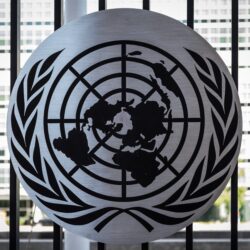| Contribute a translation | Source (English) |
|---|---|
That Religion Be Not a Cloak for Hypocrisy Suggested by Psalm 5 | |
O God, frustrate the purposes of evil men who make a show of piety, while in their hearts they mock at righteousness. | |
They exploit their fellowmen and cheat them of their due, and then seek to bribe you with lavish gifts out of the hard-earned toil of those they rob. | |
Make known to them that you despise their worshipful posturings, and loathe their sanctimonious cant. | |
May those who worship you in truth never come to doubt your unfailing justice. | |
May they never be driven by suffering to sinful utterance or disloyal deed. | |
How the hypocrites gloat in tearing honest men away from you! | |
Having driven the righteous from your presence, they remain sole masters of religion’s power, and use its symbols for their own ends. | |
Open, O God, men’s eyes so that they may discern the evil intent of those who invoke your name to hallow their ungodly deeds. | |
Create in men a repugnance to all pretense and hypocrisy; fortify against scorn and ridicule all those who trust in you. | |
Let them abide in the confidence that truth will in the end prevail. |
“That Religion Be Not a Cloak for Hypocrisy,” by Rabbi Mordecai Menaḥem Kaplan can be found on p. 435-5 of his The Sabbath Prayer Book (New York: The Jewish Reconstructionist Foundation, 1945). The Sabbath Prayer Book became a victim of religious zealotry when it was publicly burned shortly after its initial publication. “Kaplan’s siddur was burned by an ultra-Orthodox organization, the Agudat Ha-rabbanim of the United States and Canada, in a ceremony at the McAlpin Hotel on June 15, 1945. It was no accident that this group chose the week when parshat Korach, the section from the Torah containing the story of the great rebellion against Moses in the desert, was read in synagogue.”[1] Mel Scult in The Radical American Judaism of Mordecai M. Kaplan (Indiana University Press 2013), ch. 9 “Salvation Embodied: The Vehicle of Mitzvot,” p. 196.
During the midsummer Three Weeks “beyn haMitsrim” (between the narrow-places — between the Fasts of 17 Tammuz and 9 Av) we are enjoined to consider the struggle within our community of sinat ḥinam (hatred without cause) or intra-communal hatred, a cause by which the second temple was destroyed a cause for which the realization of the third temple era is continually deferred. This past week on the morning celebrating the New Moon of Av (Rosh Ḥodesh Menaḥem Av), the Women of the Wall at the Kotel in Jerusalem again experienced violent and hateful demonstrations during their worship including the public burning of their siddur. May every book burner hear the prophetic voice of Heinrich Heine who in Germany in 1821 wrote: “Where they have burned books, they will end in burning human beings” (Dort, wo man Bücher verbrennt, verbrennt man am Ende auch Menschen)[2] Quote from Heinrich Heine’s play Almansor, written 1821–1822. and broaden the borders of their disagreement to accept in its earnest spirit the differences by which their fellows love and pursue the holiness and divinity that suffuse every aspect of creation, and together seek to circumscribe the predatory instinct in our human nature in its appetite for violence and bloodshed.
I have adapted the original text of this prayer to remove archaisms. –Aharon N. Varady
Source(s)


Plaque at the Nazi book burning memorial on Bebelplatz in Berlin, Germany. The plaque has a quote from Heinrich Heine’s play Almansor (play, written 1821–1822). “Where they have burned books, they will end in burning human beings” (Dort, wo man Bücher verbrennt, verbrennt man am Ende auch Menschen) about burning of Quran in Granada that was expected to be followed by burning humans (Muslims then Jews) in the 1500s. (credit: Fjmustak, license: CC BY-SA)
Notes

“That Religion Be Not a Cloak for Hypocrisy, by Rabbi Mordecai Kaplan (1945)” is shared through the Open Siddur Project with a Creative Commons Attribution-ShareAlike 4.0 International copyleft license.










Leave a Reply